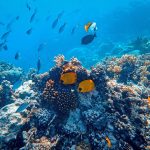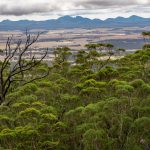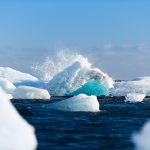 March 15, 2021 10:10 am
Published by Climate Extremes
March 15, 2021 10:10 am
Published by Climate Extremes
This study uses a high‐resolution climate model to investigate how and why marine heatwaves would change for the Australian region. The relative impacts of increases on background ocean temperature and changes to intrinsic temperature variations are compared.
 March 5, 2021 1:19 pm
Published by Climate Extremes
March 5, 2021 1:19 pm
Published by Climate Extremes
CLEX researchers found coastal marine heatwave hotspots were concentrated along the Mediterranean Sea, Japan Sea, south‐eastern Australia and the north‐eastern coast of the United States. They also found the frequency of these events and their duration globally increased by 1–2 events per decade and 5–20 days per decade. Most of the marine heatwave hotspots identified were associated with high upward trends.
 November 24, 2020 12:27 pm
Published by Climate Extremes
November 24, 2020 12:27 pm
Published by Climate Extremes
In this paper, the researchers investigated how dryness, represented by the aridity index, affects the inter-annual variability of ecosystem iso/anisohydricity at the regional scale, estimated using satellite microwave vegetation optical depth observations.
 November 17, 2020 11:31 am
Published by Climate Extremes
November 17, 2020 11:31 am
Published by Climate Extremes
In a new study published in Nature Scientific Reports, a group of oceanographers, atmospheric scientists, ecologists and fisheries experts got together to identify the most severe marine heatwaves over recent decades. The objective was to understand what triggered these events and led to their ultimate demise.
 March 13, 2020 10:59 am
Published by Climate Extremes
March 13, 2020 10:59 am
Published by Climate Extremes
In this study, CLEX researchers and colleagues analysed the magnitude and sensitivity of vegetation responses to the Millennium Drought with satellite-derived information.
 May 6, 2019 3:19 pm
Published by Climate Extremes
May 6, 2019 3:19 pm
Published by Climate Extremes
In this project, the selected student will use a one-dimensional numerical ocean model to simulate and understand the physical and biogeochemical processes in the ocean near Australia. The student will utilise the long-term oceanographic measurements conducted at one of the National Reference Stations maintained by the Australian Integrated Marine Observing System (i.e., the Maria Island, the Port Hacking, and the Rottnest Island).
 November 30, 2018 12:57 pm
Published by Climate Extremes
November 30, 2018 12:57 pm
Published by Climate Extremes
It has been a very active time for the Climate Variability and Teleconnections Research Program in terms of research and engagement activities right across the team, including two expeditions - one drilling coral cores in the tropics and another going south to the Antarctic Circumpolar Current.







